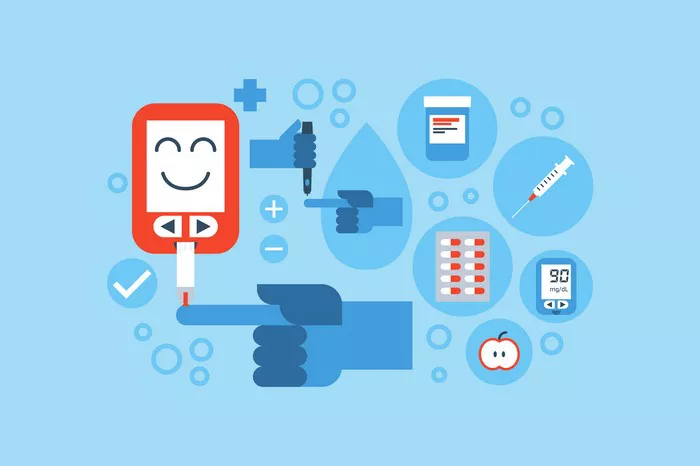Type 1 diabetes (T1D) is a chronic autoimmune condition characterized by the destruction of insulin-producing beta cells in the pancreas. This leads to absolute insulin deficiency, necessitating lifelong management through insulin therapy and lifestyle modifications. Understanding the prognosis for individuals with type 1 diabetes is essential for patients, families, and healthcare providers. This article explores the prognosis of type 1 diabetes, focusing on long-term outcomes, complications, management strategies, and advancements in treatment.
Understanding Type 1 Diabetes
What Is Type 1 Diabetes?
Type 1 diabetes is typically diagnosed in children, adolescents, and young adults, but it can occur at any age. Unlike type 2 diabetes, which is often associated with insulin resistance and obesity, T1D is caused by an autoimmune reaction that leads to the destruction of pancreatic beta cells. As a result, individuals with T1D produce little to no insulin, making them reliant on exogenous insulin for glucose regulation.
Etiology and Risk Factors
The exact cause of type 1 diabetes remains unclear, but it is believed to involve a combination of genetic predisposition and environmental factors. Some known risk factors include:
Family History: A family history of autoimmune diseases, including type 1 diabetes, increases the risk.
Genetics: Certain genes, such as those in the HLA region, are associated with a higher risk of T1D.
Autoimmune Conditions: Individuals with other autoimmune disorders, such as thyroid disease or celiac disease, may be at greater risk.
Symptoms of Type 1 Diabetes
Common symptoms of type 1 diabetes include:
- Increased thirst (polydipsia)
- Frequent urination (polyuria)
- Extreme hunger (polyphagia)
- Fatigue
- Unexplained weight loss
- Blurred vision
These symptoms often develop rapidly over days or weeks, prompting individuals to seek medical attention.
Prognosis for Type 1 Diabetes
Life Expectancy and Quality of Life
Advancements in diabetes care and management have significantly improved the life expectancy and quality of life for individuals with type 1 diabetes. Historically, life expectancy was considerably shorter for those diagnosed in childhood, but modern treatment options, including insulin therapy, continuous glucose monitoring, and advanced technologies, have led to improved outcomes.
Life Expectancy
Research indicates that individuals with type 1 diabetes can expect a life expectancy similar to that of the general population, particularly if they maintain good glycemic control and manage associated health risks effectively. A study published in the Diabetes Care journal showed that individuals diagnosed with type 1 diabetes at a younger age can expect to live approximately 10 years less than their peers without diabetes, but this gap is narrowing with advances in treatment.
Quality of Life
Quality of life (QoL) for individuals with type 1 diabetes can vary based on several factors, including psychological well-being, diabetes management, and social support. Many individuals with T1D report challenges related to the daily demands of managing their condition, including blood glucose monitoring, insulin administration, dietary restrictions, and the risk of hypoglycemia.
Despite these challenges, many individuals with type 1 diabetes lead fulfilling lives, pursuing careers, education, and family life. Psychological support, diabetes education, and peer support can enhance quality of life and help individuals cope with the emotional burden of living with a chronic condition.
Long-term Complications
While advancements in diabetes management have improved outcomes, individuals with type 1 diabetes are at risk for long-term complications, particularly if blood glucose levels are not well controlled. These complications can significantly impact prognosis and quality of life.
Microvascular Complications
Microvascular complications are damage to small blood vessels and can affect various organs:
Diabetic Retinopathy: Affects the eyes and can lead to vision loss. Regular eye examinations and timely interventions can prevent severe outcomes.
Diabetic Nephropathy: Affects kidney function and can lead to kidney failure. Early detection through regular screening and management of blood pressure and glucose levels are crucial.
Diabetic Neuropathy: Affects nerves, leading to symptoms such as numbness, tingling, and pain, particularly in the extremities. It can also lead to complications such as foot ulcers and infections.
Macrovascular Complications
Macrovascular complications involve damage to larger blood vessels and can lead to cardiovascular disease:
Cardiovascular Disease: Individuals with type 1 diabetes are at an increased risk of heart disease and stroke. Management of blood pressure, cholesterol levels, and lifestyle factors (such as diet and physical activity) is essential to reduce this risk.
Peripheral Arterial Disease (PAD): Can result in poor circulation to the limbs, increasing the risk of infections and amputations.
Management Strategies
Effective management of type 1 diabetes is crucial for optimizing prognosis and minimizing complications. Key management strategies include:
Insulin Therapy
Insulin is the cornerstone of T1D management. Various forms of insulin, including rapid-acting, long-acting, and intermediate-acting, are used to mimic the natural insulin secretion of the pancreas.
Insulin delivery methods include:
- Insulin Injections: Subcutaneous injections of insulin are the traditional method of administration.
- Insulin Pumps: Continuous infusion of insulin through a small device worn on the body can provide more precise control.
- Inhaled Insulin: A newer option for rapid-acting insulin delivery, though not widely used.
Blood Glucose Monitoring
Regular blood glucose monitoring is essential for managing T1D. Individuals should monitor their blood glucose levels multiple times a day to adjust insulin doses and dietary intake accordingly.
Continuous glucose monitors (CGMs) provide real-time data on glucose levels, helping individuals make informed decisions about their insulin and food intake.
Dietary Management
A balanced diet is vital for managing blood glucose levels. Carbohydrate counting is a common approach, allowing individuals to match their insulin doses to carbohydrate intake.
Emphasis on whole foods, including fruits, vegetables, whole grains, lean proteins, and healthy fats, can support overall health and blood glucose control.
Exercise and Physical Activity
Regular physical activity is beneficial for individuals with type 1 diabetes. Exercise can improve insulin sensitivity, aid in weight management, and enhance cardiovascular health.
Individuals should be mindful of how exercise affects their blood glucose levels and adjust their insulin and carbohydrate intake accordingly.
Psychosocial Support
Psychological well-being is an essential aspect of managing type 1 diabetes. Individuals may experience anxiety, depression, and diabetes-related distress. Access to mental health resources, counseling, and support groups can improve coping strategies and overall well-being.
Advancements in Treatment and Future Directions
Technology and Diabetes Management
Recent advancements in technology have revolutionized diabetes management for individuals with type 1 diabetes:
Automated Insulin Delivery Systems: These systems, often referred to as “artificial pancreas” systems, combine insulin pumps with continuous glucose monitors to automatically adjust insulin delivery based on real-time glucose levels.
Smart Insulin Pens: These pens can track doses and provide reminders, improving adherence to insulin therapy.
Mobile Apps: Diabetes management apps help individuals track their blood glucose levels, insulin doses, dietary intake, and physical activity, facilitating better self-management.
Research and Innovations
Ongoing research aims to improve the prognosis for individuals with type 1 diabetes:
Immunotherapy: Research into immunotherapies seeks to halt or slow down the autoimmune process that destroys beta cells, potentially preserving insulin production.
Stem Cell Therapy: Investigations into stem cell therapy may lead to novel treatments that can regenerate insulin-producing cells in the pancreas.
Vaccines: Research is underway to develop vaccines that may prevent or delay the onset of type 1 diabetes in individuals at high risk.
Conclusion
The prognosis for individuals with type 1 diabetes has improved significantly in recent years due to advancements in diabetes management, technology, and healthcare practices. While T1D remains a chronic condition requiring lifelong management, many individuals can lead healthy, fulfilling lives with appropriate treatment and support.
Understanding the potential complications associated with type 1 diabetes underscores the importance of proactive management, including insulin therapy, blood glucose monitoring, dietary choices, and lifestyle modifications. By focusing on comprehensive diabetes care and leveraging advancements in treatment, individuals with type 1 diabetes can optimize their prognosis and quality of life.
As research continues to advance our understanding of type 1 diabetes and its management, the future looks promising for individuals living with this condition. Empowering patients with knowledge, resources, and support will remain crucial in achieving positive outcomes in the long term.
Related topics:



























